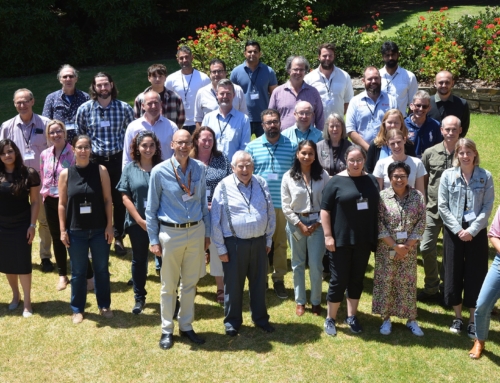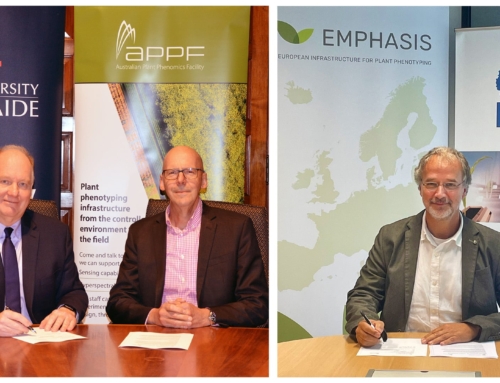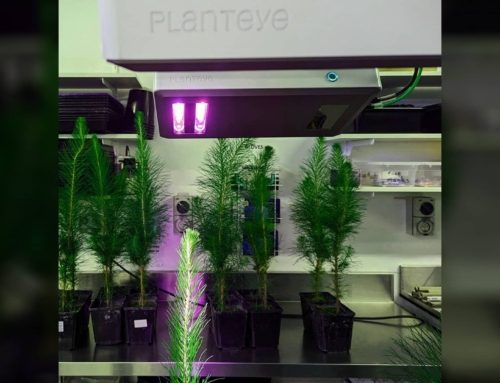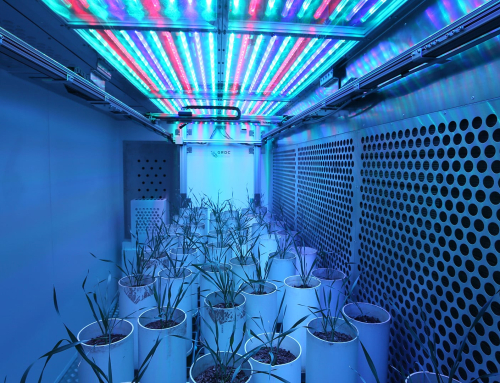Professor Mark Tester from King Abdullah University of Science & Technology (KAUST), Saudi Arabia, will present a talk in Adelaide this March:
“Into the field and into the genome – increasing salinity tolerance of crops”
Time: Wednesday 8 March, 3.30pm – 4:30pm
Venue: Hosted by The University of Adelaide, Plant Science Department, the talk will be held in the Plant Genomics Centre seminar room (Waite Campus, The University of Adelaide, South Australia) with drinks and nibbles afterwards. All are welcome.
About the speaker
Mark Tester is Professor of Bioscience at KAUST. After a PhD in Cambridge and lectureship there, he went to Adelaide, as a Research Professor in the Australian Centre for Plant Functional Genomics and Director of the Australian Plant Phenomics Facility. Mark was part of the team that led the establishment of this Facility, a $55m organisation that develops and delivers state-of-the-art phenotyping facilities, including The Plant Accelerator, an innovative plant growth and analysis facility. In his research group, forward and reverse genetic approaches are used to understand salinity tolerance and improve this in crops such as barley and tomatoes. His aspiration is to develop a new agricultural system where brackish water and seawater can be unlocked for food production.
Abstract
One-third of the world’s food is produced under irrigation, and this is directly threatened by over-exploitation of water resources and global environmental change. In this talk, the focus will be on the use of forward genetics to discover genes affecting salinity tolerance in barley, rice and tomatoes, along with some recent genomics in quinoa, a partially domesticated crop with high salinity tolerance. Rather than studying salinity tolerance as a trait in itself, we dissect salinity tolerance into a series of components that are hypothesised to contribute to overall salinity tolerance.
For barley, two consecutive years of field trials were conducted at the International Center for Biosaline Agriculture, a site with sandy soil and very low precipitation. Drip irrigation systems allowed the control of salinity by supplying plots with low (1 dS/m) and high salinity water (17 dS/m). A barley Nested Association Mapping (NAM) population developed by Klaus Pillen has been used to dissect physiologically and genetically complex traits in response to salt stress. Ten traits related to yield and yield components (e.g. days to flowering, harvest index, 100 seed mass) were recorded and five stress-indices were derived from each of these measurements. We have identified two significant loci located on the long arms of chromosomes 1H and 5H, which are both associated with several traits contributing to salinity tolerance, namely days to flowering, days to maturity, harvest index and yield.
For tomatoes, the focus is on genetics of tolerance in wild tomatoes, specifically Solanum galapagense, Solanum cheesmaniae and Solanum pimpinellifolium. An association genetic approach is being taken. High quality genome sequences have been made, and genotyping-by-sequencing undertaken. Tomatoes have been phenotyped in The Plant Accelerator and in the field, and analyses are currently in progress.
The application of this approach provides opportunities to significantly increase abiotic stress tolerance of crops, and thus contribute to increasing agricultural production in many regions.
Mark is in Adelaide between Mon 6th and Sun 12th March. If you would like to meet with Mark, please contact him directly: mark.tester@kaust.edu.sa
The Plant Accelerator
Plant phenotyping research projects facilitated by The Plant Accelerator vary from large scale screening of early growth, to salinity tolerance and water and nutrient use efficiency. Possible applications are diverse with respect to the measured traits and plant species studied. Please contact our experts to discuss how your research might benefit from the capabilities and services provided by The Plant Accelerator.







